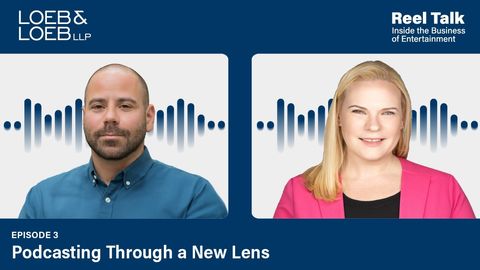New Law
As of June 19, 2025, the New York State Fashion Workers Act (FWA) is reshaping how models are engaged, protected and paid in the state. While much attention has been paid to the obligations of management companies and modeling agencies, brands and their advertising agencies—referred to as “clients” under the law—now carry direct legal obligations towards the models they hire.
Application to Brands/Agencies
The FWA defines a "client" broadly as any entity that contracts for a model’s services, either directly or indirectly. In practice, this will typically include the brand commissioning the work, as well as the advertising agency, production company or creative agency acting on the brand’s behalf. If you’re hiring a model—whether through a modeling agency, a casting platform or even directly—you’re likely a “client” under the Act and subject to its obligations.
The FWA also defines “model” broadly as anyone (employees or contractors) who "appear in a photo session, live runway show or other live, filmed or taped performance, including on social media" when they’re posing, providing artistic express or representing something for advertising or display. That definition likely includes not just models, but influencers, content creators, actors or anyone hired to appear in an ad, commercial or runway show on behalf of a brand.
Obligations
Under the law, there are various obligations for clients, which are as follows:
Overtime Compensation
Clients must pay models 1.5 times the contracted hourly rate for any work exceeding eight hours in a 24-hour period.
Mandatory Meal Breaks
If a job exceeds eight hours, a 30-minute unpaid meal break must be provided. Failure to do so constitutes a labor law violation.
Safe Working Conditions
Clients must ensure that modeling assignments do not pose unreasonable risks of physical or mental harm and must maintain a zero-tolerance policy toward abuse, harassment or coercion.
Consent for Sexually Explicit Work
Any assignment involving nudity or sexually explicit content must comply with New York Civil Rights Law § 52‑c, requiring written, voluntary and specific consent before the shoot and before any public distribution.
Right to Representation
Models have the right to be accompanied by a representative, such as an agent, manager or chaperone, on set.
Liability Insurance
Clients must carry adequate liability insurance covering risks to the model during the course of their engagement.
Use of AI and Digital Replicas
Clients may not use a model’s digital likeness or an AI-generated replica without prior, clear and conspicuous written consent, including full disclosure of intended use, compensation and duration.
Why This Matters for Brands/Agencies
These provisions represent a shift in liability and compliance: Clients can no longer rely solely on modeling agencies or third-party vendors to handle legal obligations. If you're a brand, production team or ad agency contracting with a model in New York, you are now directly accountable for adhering to this law.
Failure to comply may result in enforcement actions by the New York Department of Labor and/or civil litigation initiated by the model.
When Does the Law Apply?
At a minimum, the Fashion Workers Act is a New York State law, and its protections apply when the work is performed in New York or when the contract is governed by New York law. Being a New York–based brand or agency alone does not automatically trigger the Act if the modeling work takes place entirely elsewhere under a non-NY contract.


/Passle/63ef8bdcf636e911c850090e/SearchServiceImages/2026-02-13-18-50-31-701-698f727799773b21433a7328.jpg)
/Passle/63ef8bdcf636e911c850090e/SearchServiceImages/2026-02-08-02-56-17-355-6987fb51644a11e11ab82944.jpg)
